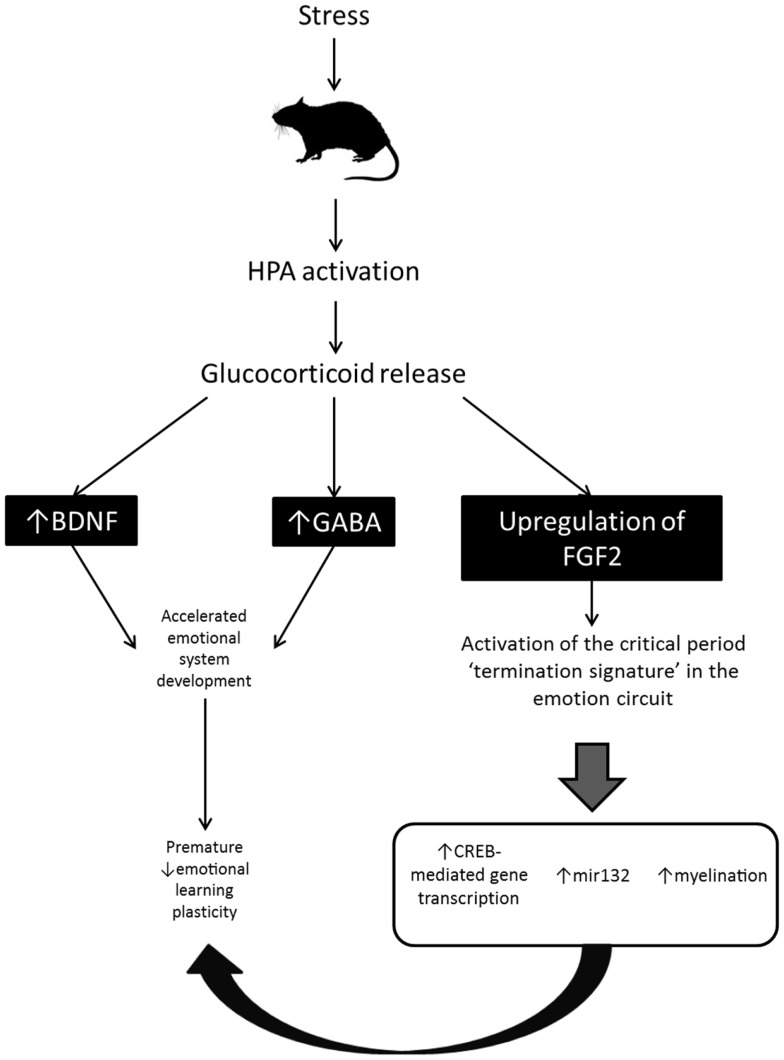Figure 2.
Proposed mechanism by which chronic stress accelerates the developmental transition between infant and adult-like forms of fear retention and fear learning in rodent models. Stress-induced activation of the HPA axis results in increased BDNF and GABA, and central upregulation of FGF2. BDNF and GABA stimulate early development of the emotion system and may lead to early opening of the critical period for infantile amnesia and erasure-like extinction. FGF2 upregulation triggers activation of the critical period “termination signature” in the emotion circuit (i.e., activates the cellular and molecular mechanisms known to be involved in critical period timing in sensory systems). Activation of those signals leads to an early termination of fear learning plasticity.

